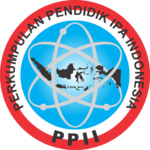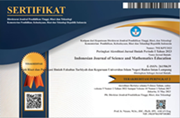Preservice Teachers’ Experiences in Experiential Instruction in Place Value
Abstract
This study explored Kolb’s four-phase experiential learning cycle in the teaching and learning of place value at the University level. I deployed quasi-experimental pretest-posttest design with a sample of 42 preservice teachers who are undergoing education and training in the University to be become teachers. The first 21 received Kolb’s experiential model (experimental group) while the second 21 received traditional problem solving models as control group. In the tests, the performance of the preservice teachers in the experimental and control groups were compared using robust statistical t-test and ANCOVA analyses. The results showed that even though traditional Polya’s problem solving and scientific models were widely acknowledged, Kolb’s experiential principles of concrete experience, reflective observation, abstract conceptualization and active experimentation propelled educational theory and practice into a new direction and focusing on much on the role that experience plays in the learning process. A follow up content analyses of four students’ sample work showed that Kolb’s experiential learning better developed their critical thinking and problem solving skills, effective communication skills, modern technology use, self-directions, and understanding in place value problems. Based on these findings, it is recommended that mathematics educators refocus and tailor their instructional techniques to Kolb’s experiential model of problem solving while bridging the gaps with the traditional problem solving strategies.
Keywords
Full Text:
PDFReferences
Ali, C. A. (2021). Ghanaian Indigenous Conception of Real Mathematics Education in Teaching and Learning of Mathematics. Indonesian Journal of Science and Mathematics Education, 04(1), 37-47, DOI: 10.24042/ijsme.v4i1.
Ali, C. A., & Adu Poku, F. (2021). ECM245: Learning Teaching and Assessing Numeracy for Early Grade (Units 1-3). Winneba: College of Distance and e-Learning.
Biswal, M. (2015).Experiential Learning.Scholarly research journal for humanity science and English language. 2(10), 2446-2455.
Creswell, J.W. (2014). Research design: qualitative, quantitative, and mixed methods approach (4ed). Washington DC: SAGE Publications, Inc.
Driscoll, B.A. (2011). Graduates’ perspectives regarding the impact of the integration of experiential learning in academic programs.Master of Science Thesis, University of Iowa.
Freeman, S., Eddy, S.L., McDonough, M., Smith, M.K., Okoroafor, N., Jordt, H.,&Wenderoth, M.P. (2014). Active learning increases student performance in science, engineering and mathematics. Proceedings of the National Academy of Sciences, 111(23), 8410-8415.
Ignacio Jr., A. G., & Reyes, J. D. (2017). Exploring Mathematics Achievement Goals Using Kolb’s Learning Style Model. Asia Pacific Journal of Multidisciplinary Research, 5(1), 18-24. Retrieved from file:///C:/Users/USER/Downloads/APJMR-2017.5.1.2.031.pdf.
Jacobs, V.R., Martin, H.A., Ambrose, R.C., & Philipp, R.A. (2014). Recognize three common instructional moves that are generally followed by taking over children’s thinking. Teaching Children Mathematics, 21 (2), 260-276.
Kılıç, Ç. (2017). A new problem-posing approach based on problem-solving strategy: Analyzing pre-service primary school teachers’ performance. Educational Sciences: Theory & Practice, 17, 771–789. http://dx.doi.org/10.12738/ estp.2017.3.0017.
Kurt, S. (2020). Kolb’s Experiential Learning Theory & Learning Styles, in Educational Technology, December 28, 2020. Retrieved from https://educationaltechnology.net/kolbs- experiential-learning-theory-learning-styles/.
Macdonald, B., Westenskow, A., Moyer-Packenham, P. S., & Child, B. (2018). Components of Place Value Understanding: Targeting Mathematical Difficulties When Providing Interventions. School Science and Mathematics 118(2):1-13 DOI: 10.1111/ssm.12258. Retrieved from file:///C:/Users/USER/Desktop/Problem17.pdf.
Martinie, S,. & Thiele, J. (2020). The Story of Problem Solving: Looking Back and Moving Forward. NCTM 100 Days of Professional Learning August 18, 2020 Retrieved from https://www.nctm.org/uploadedFiles/Conferences_and_Professional_Development/Webi nars_and_Webcasts/Webcasts/Aug18WebinarSlides.pdf.
McMullan, W. E., & Cahoon, A. (1979). Integrating abstract conceptualization with experiential learning. The academy of management review, 4(3), 453-458.
Ministry of Education (2021). What is Problem Solving? Dunedin, New Zealand: Ministry of Education. Retrieved from https://nzmaths.co.nz/what-problem-solving.
Ministry of Education (2019). New Bachelor of Education Curriculum for Universities and Colleges of Education in Ghana. Accra: National Council for Curriculum and Assessment (NaCCA).
Močinić, S., Tatković, N., & Tatković, S. (2020). The Use of Kolb’s Model in Science Teaching Methodology. Propósitos y Representaciones, 8 (SPE2), e684. Doi: Retrieved from http://dx.doi.org/10.20511/pyr2020.v8nSPE2.685.
National Council of Teachers of Mathematics (2000[NCTM]). Principles and Standards for School Mathematics. Reston, VA: NCTM.
Olaniyan, A.O., Omosewo, E.O., & Nwankwo, L. I. (2015). Effect of Polya problem-solving model on senior secondary school students’ performance in current electricity. European Journal of Science and Mathematics Education 3 (1), 97‐104.
Passarelli M. A., & Kolb, D. A. (2012).Using Experiential Learning Theory to Promote Student Learning and Development in Programs of Education Abroad.In Michael Vande Berg, Michael Page, & Kris Lou (Eds.) Student Learning Abroad. Sterling, VA. PDF http://learningfromexperience.com/media/2012/02/using-experiential-learningtheory-to- promote-student-learning-and-development-in-programs-of-educationabroad.pdf.
Polya, G. (1945). How to solve it; a new aspect of mathematical method. Princeton University Press.
Price, P.S. (2001). The Development of Three Students’ Place Value Understanding: Representations and Concepts. PhD Thesis, Queensland University of technology.
Resnik, D. B. (2020). What Is Ethics in Research & Why Is It Important? National Institute of Environmental Health Sciences, Retrieved from https://www.niehs.nih.gov/research/resources/bioethics/whatis/index.cfm.
Sai,F. L., Shahrill, M., Tan, A. & Han, S. H. (2018). Arithmetic learning with the use of graphic organiser. IOP Conf. Series: Journal of Physics: Conf. Series 948, 1-10. DOI: 10.1088/1742-6596/948/1/012057, retrieved from https://www.researchgate.net/publication/323233832_Arithmetic_learning_with_the_use of_graphic_organiser.
Sar, M. H., & Olkun, S. (2019). The relationship between place value understanding, arithmetic performance and mathematics achievement. Elementary Education Online, 18(2), 951- 958.
Seepersad, C.C., Green, M.G., & Schmidt, K.J. (2006).Learning Journals as a Cornerstone for Effective Experiential Learning in Undergraduate Engineering Design Courses.2006 ASEE Midwest Section of the American Society for Engineering Education,University of Missouri Kansas CityKansas City, MissouriSeptember 13-15, 2006.
Williams, E. (2021). What Is Place Value? Explained For Primary School Parents, Teachers And Children! Third Space Learning, retrieved from https://thirdspacelearning.com/blog/what-is-place-value-explained/.
Winarso, W. & Toheri, T. (2021). An analysis of students‘ error in learning mathematical problem solving: The perspective of David Kolb‘s theory. Turkish Journal of Computer and Mathematics Education, 12(1), 139-150. https://doi.org/10.16949/turkbilmat.753899.
DOI: http://dx.doi.org/10.24042/ijsme.v6i1.10440
Refbacks
- There are currently no refbacks.
Copyright (c) 2023 Unit Riset dan Publikasi Ilmiah FTK UIN Raden Intan Lampung

This work is licensed under a Creative Commons Attribution-ShareAlike 4.0 International License.

Indonesian Journal of Science and Mathematics Education is licensed under a Creative Commons Attribution-ShareAlike 4.0 International License.





